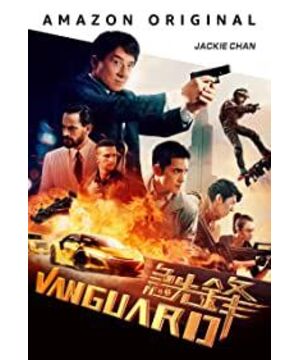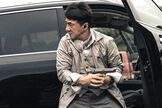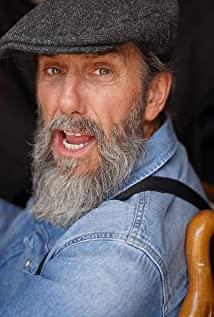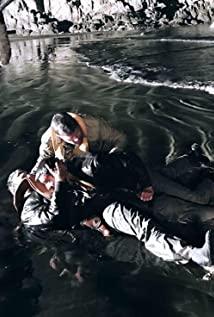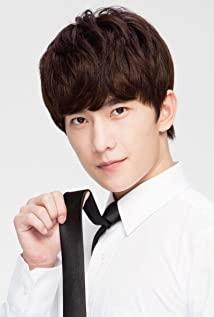I spent a lot of patience dragging this movie, trying to find out where Jackie Chan's movies have been ruined in recent years? In addition to the special effects of fifty cents, the awkward performances and the plastic lines in various dubbing studios that will never be staged, there must be something wrong with the hardware. Looking around, I still want to blame it on high-definition photography.
High-definition photography separates the texture of today's films from yesterday's. In the film industry, every technological change not only affects its field, but also affects the overall situation. Like the appearance and perfection of sound, it is a whole system of lens language, and the color change of the film makes the symbols and expressions different from before. The emergence of any technology cannot endanger the existence of the film tradition alone, which is the root of the film's 100-year standing. Some people stick to it and some people reform. With the choice of filmmakers, the presentation of films will become more and more diverse. With the advent of the digital age, high-definition photography has also grown on mobile devices. This is an era of universalization of visual media, and movies no longer have the halo of the past. However, this gradually deteriorating aesthetics and a few well-made movies are still roaring in our ears again and again: movies are movies, and those that don’t work. The videos shot by hand, no matter what equipment, are completely different. We often say that a TV series has the quality of a movie. This sentence without much thought reflects the difference between two different narrative media. However, most of the time we are only talking about the photographic level. High-definition photography is usually accompanied by such doubts. 's works, and we are almost seeing it as the cause of this phenomenon. What I want to say is that it's not that you see bad movies under high-definition photography, but you can see the dissatisfaction with high-definition photography in bad movies.
If a movie is good, it must be the right combination of multiple parties. The same bad movie will not be planted on which one is absent-minded. HD photography is indeed difficult to shoot well, or to add one in today's film context. A good director, like Ang Lee, can hardly give an example even with extreme technology. In "Gemini Man", which is also an action film, the action scenes are also figured out by top stunts and scheduling. The diversity and difficulty of defining films can be seen from this, and even the film culture of each region is different. Tang Jili has also experienced the final glory of Hong Kong action movies and Jackie Chan's works. At that time, action movies, like other Hong Kong movies, had a kind of energy to fight for their lives. Such movies hardly need scheduling, like in "Police Story" When the shopping mall jumps, it only needs to play the whole process three times from different angles, which is enough to attract the attention of new audiences. Scheduling in Hong Kong movies is either a strong personal touch or just to save money. Close-ups that emphasize the action of the characters, and panoramas that fully document the stunt scenes, interspersed with clips are enough to blow through the audience's faces strongly. This can be seen in "Super Police" and "Red Zone". And lost all of Jackie Chan's works, already exist in name only. Actors and stuntmen are no longer in that era of safety, and their suits and leather are dust-free, as if the last time they shattered glass was a matter of the last century. Another point that is very telling is the speed of the speeding cars and acrobatics, the five-mao special effects and the impact of plastic textures are presented at a silent film-like speed, appearing repeatedly in "Kung Fu Yoga" and "Pioneer". This goes against the spirit of Hong Kong films where every action is shown in slow motion. However, even if he is as slow as Woo, he will use fast shots to express the speed and strength of the action, but it is mostly used in cutscenes.
Hollywood action movies have a tough-guy tradition and are known for big scenes and a sense of power. At the same time, in the golden age of Hong Kong film, I also learned a lot of Chinese martial arts instructors. Nowadays, Chinese action films have begun to learn from the United States, but unlike Hong Kong films that are slanted, the advantages of American films are based on their well-made and strict production, and they will not imitate if the conditions are not met. Aura, the whole becomes more and more rigid.
The special effects cannot be made, the special effects cannot be achieved, the scheduling cannot be done, the editing has no rhythm, the movements have no strength, and the props have no texture. The action movie in an embarrassing position died under the high-definition photography that exposed all the dead ends. The formation of a specific type of film form must be related to the technical level of various aspects of the film, as well as the local social and cultural environment. When we say that a movie has a TV series quality, it can also be said that it has a variety show quality. This is by no means the difference between technical media. Later, there may be a work shot with a vertical screen lens that we call a movie. "Pioneer" and the Jackie Chan movies in recent years, and most of the domestic movies in recent years, have similar crux. The actors' fake gestures, the lines they read, and the disconnection from the environment in the play all make us feel embarrassed. There was no shortage of winking and exaggerated low-level jokes in Hong Kong movies in the old days, but everything is out of tune today. This is another topic that can be very long.
Taking "Pioneer" as an example, the title may not be appropriate, because Jackie Chan has basically relegated to the second line, and there are only zero movement designs in "Kung Fu Yoga". To put it simply, Jackie Chan's action movie in the past ten years is only "Zodiac", which is also Jackie Chan's last "work". The subsequent transformation attempts were only inferior in film quality. In the past five years, I have felt that I have practiced myself. Jackie Chan in "British Showdown" gave us a glimpse of his plasticity, and I won't take the time to comment on films like "Pioneer".
View more about Vanguard reviews


